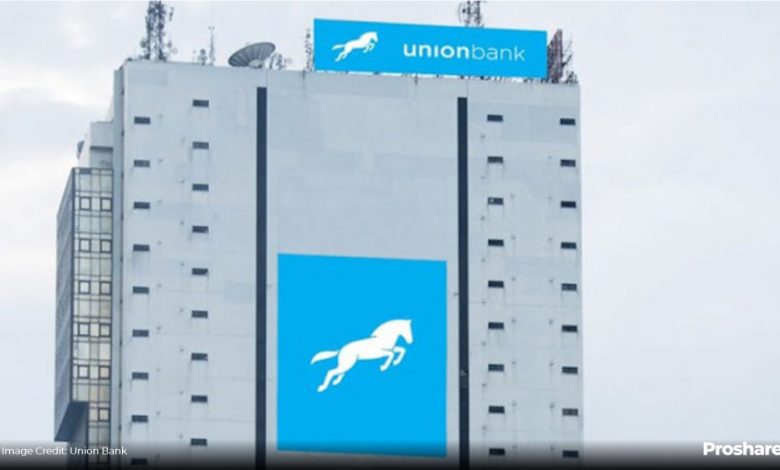Titan Trust and Union Bank: A Deal, A Reversal, and the Regulator

In 2022, Titan Trust Bank, backed by TGI Group, surprised many by acquiring 93.41 per cent of Union Bank of Nigeria. The deal involved more than 27bn shares at seven naira each, giving it a total value of about ₦191bn or roughly US$461m.
To finance the acquisition, Titan Trust secured a US$300m facility from Afreximbank and raised approximately USD 190 million in equity from its core shareholders, Magna International and Luxis International DMCC. On the surface, everything seemed to have been done by the book. Approvals were obtained from the Central Bank of Nigeria, the SEC, the Nigerian Exchange, and the Federal Inland Revenue Service. Certificates of Capital Importation were also issued to back the inflows.
Nevertheless, the structure of the deal raised several important questions. The CBN has long held the rule that a Nigerian bank cannot be acquired with borrowed money (such money does not qualify as Tier 1 capital, even though in some contexts it would qualify as Tier 2 capital). The reasoning is simple, as we explained in a recent post on the Unity-Providus merger. If acquisitions are debt-funded, the repayment obligations weaken the capital of the acquiring bank, encourage pressure on the acquired bank’s balance sheet, and ultimately put depositors at risk. The regulator’s position is that ownership must rest on clear and unencumbered equity.
A New Sheriff in Town
When a new team took over at the CBN, this principle was tested again. A special investigation panel concluded that the funding model for the Titan Trust–Union Bank deal did not meet the standard. The panel even raised concerns about proxies linked to the former Central Bank Governor, Godwin Emefiele. In January 2024, the CBN dissolved the boards of Union Bank, Titan Trust, Keystone, and Polaris and installed new management. The message was unmistakable. The Titan Trust acquisition would not stand muster.
By 2025, a court-sanctioned merger approved by the CBN left Union Bank as the surviving entity, while Titan Trust was absorbed into its older counterpart. On the surface, this corrected a flawed structure and reinforced the principle that bank ownership must be equity-based. Yet the process itself opens new questions.
Suppose the real issue was the debt component. Why were Titan Trust’s shareholders not given the option to inject fresh equity, repay the loan, and recapitalise both banks to meet the minimum of ₦200bn? Instead, they appear to have been excluded altogether, leaving the regulator to manage the merger on its own terms. What happens if these shareholders seek legal redress? Could this create more uncertainty about the newly recapitalised Union Bank’s future?
The Merger: A Case of Two Bad Heads?
Another issue is that Titan Trust Bank reportedly had negative shareholders’ funds, making it an unlikely candidate to absorb Union Bank. At the same time, Union Bank was already wrestling with capital adequacy pressures and CBN-granted forbearance arrangements. This hardly looks like a perfect pairing.
There are also suggestions that Titan Trust’s investors could be nudged to reduce their stake to 40 per cent. How exactly would this work? Can shareholders be compelled to sell down without consent? At what valuation and at what multiples would such a divestment be carried out? These questions matter because without their resolution, regulatory neutrality swims in shark-infested waters. The CBN must not only be unbiased, but it must appear so. Like Caesar’s wife, the banking system regulator must come with clean hands. There is also the delicate line to draw between needed oversight and regulatory overreach.
Proshare’s Economic and Market Intelligence Unit (EMIU) contends that what began as a bold acquisition has now become a test case of regulatory authority, governance, and the protection of investor rights in Nigeria’s banking sector. Until the loose ends are tied together, the lingering question remains. Was this a straightforward correction of a flawed deal, or has it created a precedent where ownership rights can be reshaped by regulatory intervention?
Closing Thoughts: Of Good Intentions, and Gripping Actions
The CBN was right to revisit the Titan Trust Bank and Union Bank business combination. The restructure of the recapitalisation was clearly based on a medium to long-term debt structure that did not qualify as Tier 1 bank equity finance. The previous CBN administration was remiss in this regard. However, the new CBN administration would be deemed guilty of playing coy, keeping the exact details of the present recapitalisation wrapped in obscurity. No one outside the regulatory institutions and the two banks involved in the revised business combination has an inkling of the fresh capital raise of the enlarged Union Bank or the terms of the merger.
The earlier questions raised by the EMIU require answers as they form the bedrock of regulatory transparency and operational integrity. The ‘magic’ of throwing a piece of meat in the air and swallowing it may be a good show for kindergartners. Still, for investors and other mature stakeholders, it smacks of underhandedness and paints the Nigeria investment environment in a poor light.
As of the time of writing this report, Proshare’s data and content unit is unable to update its Banks Recapitalization Watch for the enlarged entity – Union Bank, because the amount raised as Tier 1 capital in the business combination with Titan Trust Bank is still unknown.
At the point of a court-ordered Scheme of Arrangement (SoA) based on a CBN and a Securities and Exchange Commission’s (SEC’s) ‘No Objection’ letter being affirmed, the parties to the business combination should, as deposit-taking institutions, build confidence amongst customers by reassuring them of the new unencumbered (debt-free) size of their share capital.
Analysts are hopeful this information will be made available as part of the confidence-building required for the bank recapitalisation process.
A close-up of a black background
AI-generated content may be incorrect.
For further updates on Union Bank of Nigeria Plc, Companies & Quotes and Mergers & Acquisitions, follow the Proshare Investor Relations (IR) Portal.




